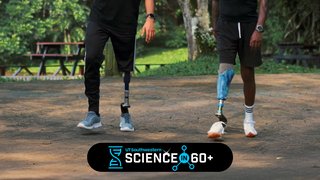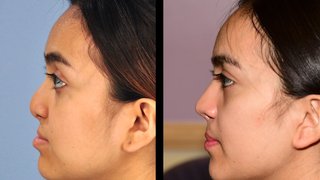
For some people, no distance is too far to travel to save money on plastic surgery. From Thailand to Brazil, or even state to state, clinics lure cost-conscious patients with promises of deep discounts on tummy tucks and breast augmentation – touting an “all inclusive” experience that may combine several significant surgical procedures in one visit.
The Global Impact of Medical Tourism
The global medical tourism market has been valued at more than $100 billion per year but according to the American Society of Plastic Surgeons, the complications and consequences associated with it cost the U.S. health system $1.3 billion per year.
Consequences of Overseas Cosmetic Surgery
More than 80% of U.S. plastic surgeons say they have cared for patients who traveled overseas for cosmetic procedures. In some cases, that means managing serious infections or other surgical complications, or attempting to salvage a botched procedure.
One study found that more than half of patients who traveled abroad for discount cosmetic surgery required treatment at home, such as wound care, removal of surgical objects, hernia repair, or removal of implants.
The additional cost to manage these issues ranged from $15,000 to $150,000 – likely out of pocket, since most insurance companies don’t cover complications from elective plastic surgery. For many patients, that expense is more than they would have paid for appropriate care from a board-certified plastic surgeon in the U.S.
Beware of Discount Clinics Closer to Home
The scary truth is that discount cosmetic surgery clinics are popping up much closer to home, too. You don’t have to go to Brazil for a Brazilian butt lift; you can have a similarly risky experience right here in Dallas, with potential serious complications and insufficient follow-up care.
While there are many good-intentioned, well-trained surgeons around the world, one thing is for sure: If the price of a cosmetic procedure seems too good to be true, the clinic is almost certainly cutting corners somewhere, and that puts your health and safety at risk. Regretfully, we’ve seen firsthand the true cost of discount plastic surgery.
Buyer beware of sales pitches, ‘package deals’

The Red Flags of Discounted Surgery
Many of our revisional plastic surgery patients who have had poor outcomes with medical tourism describe a similar experience. The staff was focused on sales instead of health, with tactics designed to promote “package deals” of several surgeries that would not be done simultaneously in a reputable facility. Often, these consultations take place via video chat and patients sometimes do not meet the doctor until the day of the procedure, if at all.
The Importance of Proper Preparation
Most credible plastic surgeons understand that patients get the best outcomes when they are prepared well in advance for surgery and recovery. Without proper planning, patients are more likely to develop complications that can quickly become life-threatening. We’ve taken care of patients with medical emergencies such as these due to plastic surgeries done elsewhere:
Potential Risks of Poorly Performed Plastic Surgery
- Bleeding complications: Internal or external bleeding due to inadequate stitching or injury during surgery.
- Cellulitis: A bacterial skin infection that can cause swelling and inflammation as it spreads.
- Infection: Bacteria can enter the surgical incisions or drainage tubes that are sometimes left in the patient’s body after plastic surgery.
- Hematoma: A pocket of blood that forms under the skin, like a large and protruding bruise.
- Medication toxicity: Some patients may be allergic to anesthesia or sensitive to it in high doses. Symptoms can range from tongue numbness and lightheadedness to convulsions and cardiac arrest.
- Skin necrosis: When the supply of blood to the skin is interrupted or damaged the skin can’t get the nutrients it needs and begins to die.
- Venous thromboembolism (VTE): Blood clots that form in the veins of the legs, arms, or pelvis can be deadly if they break free and prevent blood from reaching the lungs, heart, or brain. VTEs are the leading cause of death following plastic surgery. Patients who jump on a plane or take a long car trip home days after surgery are at increased risk.
- Wound dehiscence: The tissue around the incision falls apart due to failure of the wound to properly heal.
Trust the Plastic Surgery Experts
Surgeons in UT Southwestern’s Department of Plastic Surgery adhere to a strict code of ethics, complete extensive training, and hold leadership positions in respected plastic surgery organizations such as the American Society for Aesthetic Plastic Surgery, the Texas Society of Plastic Surgeons, and the Dallas Society of Plastic Surgeons. We will prepare you for your procedure and recovery plan long before the surgery takes place.
Related reading: Risks to consider before getting plastic surgery abroad
More than half of the patients who travel abroad for discount cosmetic surgery require treatment at home, according to recent studies. The additional cost can range up to $150,000 – considerably more than it would have cost for appropriate, safe care in the first place.
Christine Stiles, M.D.Board-certified plastic surgeon at UT Southwestern
Questions to ask about discount plastic surgery
Before you commit to any surgical procedure, be sure you consider the following to reduce your risk of undergoing a surgery you’ll regret.
What are the surgeon’s certifications?
General surgeons who offer discounted plastic surgeries typically are not board-certified by the American Board of Plastic Surgery (ABPS). They have not completed the rigorous residency or thousands of hours of supervised training to perform these procedures safely. Choosing a doctor who isn’t a board-certified plastic surgeon can result in an undesirable outcome at best and may lead to serious complications. Confirm the surgeon’s certifications on the ABPS website.
Is the anesthesiologist certified?
Discounted procedures are often done under local anesthesia, which patients may feel is safer than general anesthesia. But it isn’t – and any form should be administered only by an anesthesiologist who is board-certified by the American Board of Anesthesiology. Significant complications may occur when too much local anesthesia is given to a patient. Managing patient comfort and safety is critical to a successful procedure. This often means doing fewer procedures at a time.
Is the surgery center accredited?
Any surgery center that offers in-office procedures should be accredited by the American Association for Accreditation of Ambulatory Surgical Facilities (AAAA) to ensure it is safe, sterile, and up to date. Centers without this designation may not be subject to adequate health and safety inspections.
Is it OK to offer a coupon for a surgical procedure?
Board-certified plastic surgeons are not permitted to offer coupons for surgical procedures. This could be considered an effort to coerce a patient into a procedure. Beware of a sales pitch!
Can I meet the surgeon before the procedure?
Video consultations may be helpful to get a feel for a surgeon or practice if you live in a remote area or plan to travel for surgery. However, you should not commit to a procedure until your surgeon has been able to exam you, explain the surgery to you, and answer your questions. Make sure they’ll be the same surgeon performing your procedure and that they are board-certified.
Where does the surgeon have admitting privileges?
If your procedure will be done in a surgery center, ask your surgeon where they have admitting privileges. In the case of a complication, it is important to know your surgeon will be able to take care of you in an accredited hospital. This way, you will not have to rely on the emergency department or the on-call physician who may not be familiar with your medical history or the procedure you had.
Has the doctor reviewed my health history?
Make sure your doctor has access to your personal and family history, previous surgeries, and medications. This information will help them plan a safe, effective surgery and recovery plan.
What are the details of my post-surgical care?
Every patient should be fully informed about the steps in their care after the procedure and know who will care for them. This includes a schedule of your post-op visits. If your surgeon does not share a detailed recovery plan, don’t go through with the procedure.
Will my surgery require an overnight hospital stay?
Typically, if a procedure lasts more than five hours it is safer to stay overnight with nursing care and physician supervision. Once you leave the facility, your family or friends are responsible for taking care of you.
Can I tour the facility prior to surgery?
If possible, tour the facility before your surgery. If you don’t feel confident that the operating area is sterile and safe, or if it doesn’t seem like an appropriate place to perform surgery, it probably isn’t.
So many patients who have had complications from discount surgery admit that at some point in the process they started to have reservations. If this happens to you, listen to your gut. Don’t let price be the determining factor in selecting where you have your surgery. Saving money on the front end is not worth the expense and physical and emotional toll of enduring revisionary surgery or a prolonged recovery from complications and infection. Your health and appearance are worth more than that.
To talk with a board-certified plastic surgeon, call 214-645-2353 or request an appointment online.











